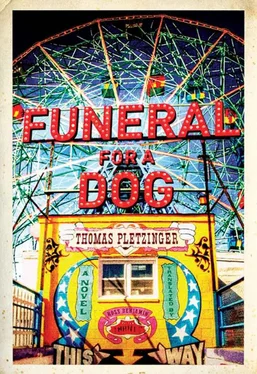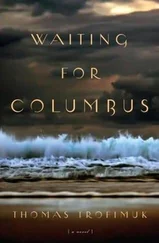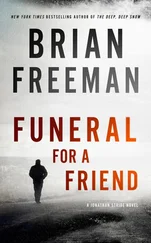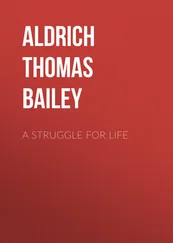M: With Bombay Sapphire?
S: The lake swallows everything that is given to it, all joy, all sorrow. The lake isn’t that particular. You can throw up overboard, Mandelkern. Don’t make such a big deal out of it.
Macumba & my decision
Svensson asks if I can swim as I take his advice and surrender the gin, wine, and fish to the lake. Svensson says I shouldn’t lean out too far, one shouldn’t lean out all too far anyway (little fish feed on the vomit on the surface of the lake). It must have been the cigarettes, I think, I smoked almost the whole pack (eventually smokers’ sperm give up). I haven’t slept. Svensson revs up the motor again and turns the gas lever. He’s sorry, he says, in situations like this it’s necessary to maintain the stability of swaying boats, he says, it’s like riding a bicycle, you can’t just stand still (Svensson revs up his voice). The boats of the Guardia di Finanza have a fairly strong wake, so he’d better bring me ashore now. Svensson steers Macumba in a wide and scarcely perceptible curve back toward the shore, and by the time I can finally stand up again, we’ve almost reached the small port (my pants wet at the knees from the water in the boat). I could wait for him on solid ground and in the fresh air, says Svensson, he has some errands to run, I should watch the fishermen. I could also take the ferry to Lugano and leave. Whatever you like, he says and steers the boat carefully to the ferry dock of the small village on the other side of the rock shelf,
You decide, Mandelkern,
and then Svensson’s friendliness catches me completely off guard as I cling to the steel ladder on the quay of Osteno (as if he were pursuing a strategy). With his hand he keeps Macumba away from the concrete piers, and declares what a pleasure this has been for him. I hope I was some help to you, he says, your questions are questions I sometimes ask myself! He’d like to continue our conversation, out here there’s not much chance to talk. With Kiki Kaufman, for example, he speaks exclusively English, and Lua too has grown taciturn (he says: in another language one is another person). Tuuli refuses to remember anything, says Svensson, shifting the outboard into first gear, Tuuli only thinks about tomorrow, the boy is ultimately a mystery to him anyway (Svensson is now talking as if he wanted to tell me these things). Then he revs up the motor and Macumba stirs the green water. Feel better, Mandelkern, Svensson shouts as he departs, leaving me behind on the dock (Macumba is a sort of voodoo among Brazilian peasants, that much I learned last night). On the dock a ferry timetable (Società Navigazione Lago di Lugano).
Piazza G. Matteotti, Osteno, 8:30 AM
It will get better soon, I think, a short stroll through the village will dispel the nausea, the fresh air the burning from the tobacco, a coffee the fatigue (solid ground underfoot). Osteno a deserted place without a real restaurant, without a supermarket and with only one café, early in the morning the two plazas are empty (Piazza Ugo Ricci, Piazza G. Matteotti). In the morning fog a black eagle with outspread wings commemorates the local dead (World War I + II). The only store in the village is closed, a paint and lacquer shop (Colorificio). On the wall of the village hall a poster announcing a fair in Porlezza for the summer of 2002 (Luna Park), there are also the recent deaths in the village. I follow the serpentine Via Val d’Intelvi up the mountain, in the cemetery overlooking the village an old woman in an army raincoat is kneeling in front of a gravestone. To avoid intruding, I wait among the urn compartments at the other end. I wait for the wretched nausea to go away (she nods at me before she leaves). On the small gravel grave a tiny brass bicycle and a wooden model of a boat, behind the gravestone a beer glass for watering flowers (Aronne Gobbi, 1937–2002). Felix Blaumeiser must have died the same year, if I am to believe Svensson, but his Astroland manuscript breaks off at that decisive point. I should ask my main informant. In the whole cemetery there are no living plants, on the Via Mulino behind it only stinging nettles (I throw up into the weeds).
How do I get out of here?
Porlezza 13:05
Osteno 13:20
San Mamete 13:28
Oria 13:35
Gandria Confine 13:40
Gandria 13:45
Castagnola 13:58
Paradiso 14:08
Lugano Giardino 14:15
What would I like,
asks the maybe forty-year-old waitress in the only bar in the village, first in too-fast Italian and then in somewhat antiquated German. I need a coffee, or else I’ll fall asleep before the ferry or Svensson picks me up. The bar is a flat shed, the only bungalow in a row of whitewashed, multistory harbor houses. At the red plastic tables in front of the bar, four men are playing cards (coffee cups & Tuttosport ). An old man with white hair and the yellow and black armband of the blind is sitting off to the side and drinking Prosecco, even though it’s only nine o’clock in the morning. Here too sparrows on the tables. I order: espresso for the fatigue, mineral water for the headache. The waitress’s reply: immediatamente, Signore . The old man with the Prosecco glass hears my whispered German and extends his arm in a Nazi salute, the waitress goes over to him and pushes down his outstretched hand with a smile. Sorry, she says, looking at me, are you unwell? Sembra pallido (my Italian is doing miserably). And because all words and reasons for the answer fail me, I alternately nod and shake my head (headache).
BAR del PORTO/Caffè Manzoni
I wait for recovery. Plastic seats under pruned lakeside lindens, on the sidewalk orange-red umbrellas (Algida), the gold-green paint is flaking off the window frames. Linden leaves, a toy vending machine full of blue, pink, green capsules (the ferry back doesn’t leave for three hours). Two days ago I fell out of time. I’ve been here since Saturday, two days without a word to Elisabeth (two days outside my life). Two days ago I bought the Süddeutsche Zeitung at the Hamburg Airport: caesaerean risk and air running out in a sunken mini-submarine in the Black Sea, along with three notebooks. Un altro espresso? asks the waitress behind the bar, as I slowly slink back from the bathroom. Even with my finger in my throat there was nothing left but thready saliva and useless coughing (Lua). I can’t get rid of last night. Si , I say, and flop down on the plastic chair next to the entrance. Elisabeth and I didn’t make an arrangement as to when to give notification of my absence (the absence of my article). By now she will have called several times, sober on my cell phone, insistent with Lufthansa, indignant with the hotel (her singing-resistance-to-pieces frequency). Tomorrow evening the next issue will go to print. Mandelkern is the perfect man for this story, Elisabeth said. I should have refused the assignment outright. The nausea isn’t subsiding, the ferry isn’t coming. I notice that I’ve forgotten my Svensson file on Svensson’s desk, along with the Süddeutsche Zeitung and my shirt with the red wine stains (Svensson won’t find out anything new about himself). This morning too the mini-submarine with the eight confined crew members will still be on the bottom of the sea. They’ll calculate their oxygen, as Svensson calculated his oxygen on September eleventh (my coughing after all the cigarettes). The blind man with the white hair has extended his arm again and is babbling German and Italian commands to himself. I would have liked to reread the article about the risks of caesareans, I would have been interested in the report on the mobile lifestyle (Elisabeth and me). When the waitress sets another coffee in front of me and my notebook, it becomes clear to me that I should call, but there’s chewing gum stuck to the pay phone of the Bar del Porto.
Читать дальше












